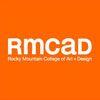
Create your own video games with Unreal Engine or work on the next AAA title! Turn your passion for games into a career with CG Spectrum’s game design, programming and game art courses led by industry pros from major studios. Learn more.

| Ranking | School | City |
|---|---|---|
| 1 | University of Denver | Denver |
| 2 | University of Colorado, Colorado Springs | Colorado Springs |
| 3 | Rocky Mountain College of Art and Design | Denver |
For an explanation of the ranking criteria, click here.

University of Denver (DU) is home to the Daniel Felix Ritchie School of Engineering and Computer Science. Within the school is a Computer Science Department that provides the opportunity to specialize in just about any area. Other department highlights include small class sizes with courses grounded in modern software engineering; interdisciplinary, experiential, and project-based learning laboratories; participation in student-run clubs such as the DU Game Developers Society, DU Esports, DU Computer Science, and Women in Technology; and faculty members who are active in research.
In addition to custom specializations, DU’s Computer Science Department provides several specific pathways to study game design. This includes BA degrees in Applied Computing and Game Development; BS degrees in Computer Science and Game Development; and MS and PhD degrees in Computer Science. Course examples across programs include Game Programming; 3D Modeling; Game Design; Multimedia Systems; Programming Languages; Machine Learning; and Operating Systems.
Undergraduates will complete a Game Capstone. During the course of this culminating experience, students will conceptualize, design, test, and debug an industry-ready game. In addition to learning about the game design process from start to finish, students will develop group collaboration and researching skills.
Both graduate and undergraduate CS students will have opportunities to participate in DU’s study abroad programs, internships, and cooperative education. Recent internship employers include The Walt Disney Company, Charter Communications, Oracle, NBC Universal, and Ball Aerospace.
Graduates of the Computer Science and Game Development programs at University of Denver work in all 50 states and across 145 countries. Program alumni are Game Designers, Game Developers, Game Programmers, Multimedia Artists, Software Engineers, Freelance Designers, and Entrepreneurs.
University of Denver was established in 1864 as the Colorado Seminary. Today, the school provides more than 200 different degree programs to approximately 12,000 students. Programs at DU are organized across 10 colleges and schools. University of Denver is accredited by the Higher Learning Commission (HLC).

The College of Engineering and Applied Science at University of Colorado Colorado Springs (UCCS) is home to the Department of Computer Science. Within the department are several paths to study game design. Options include a Computer Science BA (BACS) with a Game Design (GD) track; a Bachelor of Innovation (BI) in Game Design and Development (GDD); and minors in GD and Game Programming + 3D. Both minors require 21 credit hours. Course examples across programs include Fundamental Game Design Concepts; Introduction to Programming for Game Developers; and Computer Graphics.
The Computer Science Department also houses one graduate option: the interdisciplinary MS in Computer Science with Games and Media Integration (MSCS-GMI). This program provides a solid foundation in the research, design, and development of games, animation, filmmaking, wearable computing, VR/HCI, and complex systems.
The UCCS MSCS-GMI also allows students to pursue a specialization through electives and develop an industrial portfolio with an interdisciplinary focus. Elective examples include Virtual Reality and Human Computer Interaction; Animation and Visualization; Multivariate Control I and II; Advanced Computer Graphics/Morphing; Evolutionary Computation; and Multi-Media.
The culminating experience for the MSCS program is the Thesis or Project. Final works are eligible for submission to events such as the Game Developers Conference (GDC), virtual reality and HCI interaction conferences, the International Symposium on Wearable Computing (ISWC), and/or the SIGGRAPH Computer Animation Festival.
The BACS program at University of Colorado Colorado Springs focuses on software design and development, and computer applications. The GD track focuses on game design and development, graphics, game testing and distribution, user interfaces, and game theory. Course examples include Python Programming; Design & Analysis of Algorithms; Programming with C; Advanced Software Engineering; and Programming with UNIX.
BACS students must complete 120 credit hours to graduate, including 42 credits in their chosen track. Students may also use these credits to complete a minor, second major, or even a second degree.
The Bachelor of Innovation Program at UCCS is accredited by the Computing Accreditation Commission of ABET. The program prepares students for careers in traditional games for entertainment, serious games, and casual games. The curriculum focuses on game design and development, technical design, and programming. BI students will also explore other areas such as art and music. Course examples for the program include Artificial Intelligence (AI) for Games; Game Design for Diverse Populations; Commercial Game Design Practicum; and Team-Based Game Testing and Deployment.
Graduates of the Computer Science and Games programs at University of Colorado Colorado Springs are prepared to pursue roles across industries. Program alumni have been hired at major studios across the U.S. Others have launched their own studios and freelance businesses where they have created original and commercial games for leading studios, companies, and organizations.
Founded in 1965, University of Colorado Colorado Springs serves more than 12,000 students from across the U.S. and more than 80 nations. The school offers more than 50 undergraduate degree options, dozens of master’s degrees, and eight doctoral programs across six colleges and schools. University of Colorado Colorado Springs is accredited by the Higher Learning Commission (HLC).

Rocky Mountain College of Art and Design (RMCAD) is an Unreal Engine Academic Partner and home to a Game Art BFA program led by industry professionals. Consisting of 123 credit hours, the program includes highlights courses taught by industry professionals; learning that takes place in a collaborative environment allowing students to interact with artists from different RMCAD programs; a Liberal Arts curriculum that helps students develop critical thinking skills; and participation in Game Art Events.
The Game Art BFA at RMCAD also features small class sizes, access to state-of-the-art facilities and equipment, and courses taught by industry professionals. Students can expect to take courses Lighting; Animation, Character Rigging; Observational Drawing; Texture Mapping; 3D Modeling; Visual Storytelling; and Environment Design. While students can choose to complete the program on-campus or on ground
All Game Art students have the opportunity to complete the program online or on campus. However, all on campus students are required to take part in online learning.
The Game Art BFA at Rocky Mountain College of Art and Design culminates with a design project. Graduates are prepared for careers in the game design industry, animation, film, and advertising, among others. Examples of potential career paths include Game Artist, 3D Modeler, Animator, Texture Artist, Environment Designer, and Lighting Artist.
Rocky Mountain College of Art and Design began in 1963 as Rocky Mountain School of Art. Serving more than 1,000 students, RMCAD offers 16 degree and certificate programs offered in campus/hybrid and online formats. Rocky Mountain College of Art and Design is accredited by the Higher Learning Commission (HLC) and it is an accredited institutional member of the National Association of Schools of Art and Design (NASAD).